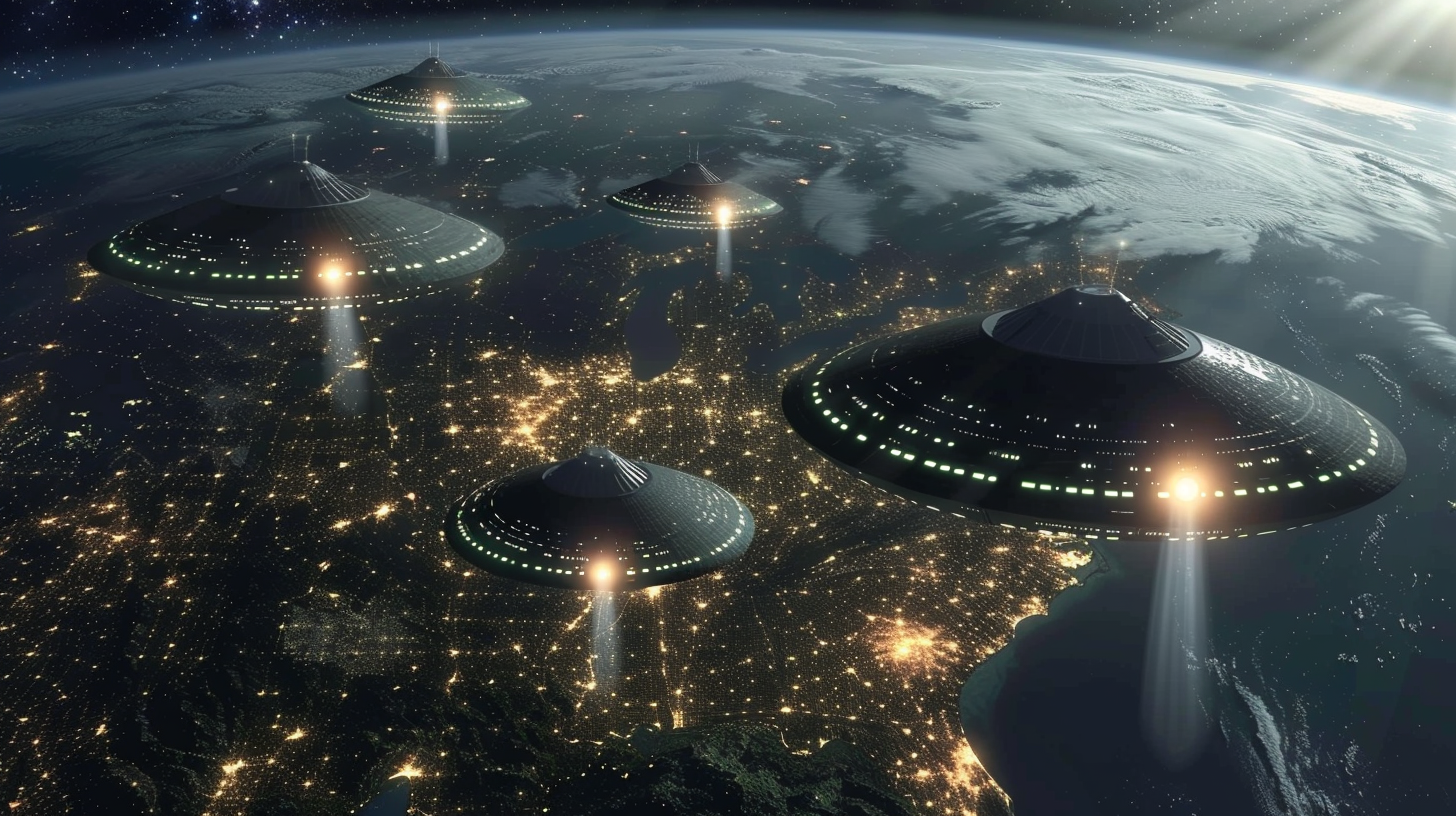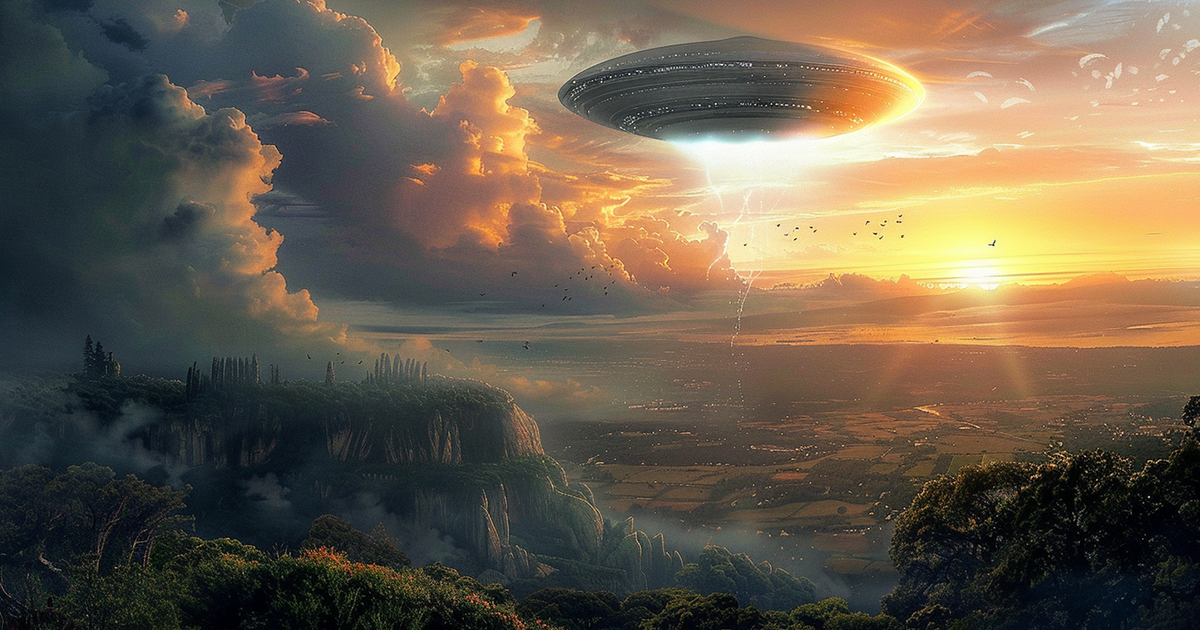Hidden deep within the archives of American history are perplexing accounts that defy traditional explanations, hinting at inexplicable forces at play. From the brutal battlefields of the Civil War to the corridors of power in Washington, DC, whispers persist of supernatural impacts that have transcended time. While these narratives may spark skepticism, they provoke thought-provoking inquiries about the potential involvement of extraterrestrial entities in shaping human destinies.
Take, for instance, the peculiar occurrences witnessed by the 7th New York Militia during their expedition to Annapolis in 1861. Amidst the turmoil of war, soldiers exchanged stories of a celestial spectacle that defied reason: the moon seemingly traversing the sky, encompassed by three distinct halos of light. While some dismissed these sightings as mere illusions, they bear a curious resemblance to contemporary anecdotes of UFO sightings.
Nevertheless, it wasn’t solely in the heavens that purported otherworldly forces exerted their influence. Troops on opposing sides of the conflict recounted unsettling encounters with shadowy apparitions and premonitory dreams foreshadowing the horrors of war. From the ghostly image of George Washington guiding soldiers at Gettysburg to Abraham Lincoln’s eerie premonitions of his demise, the era of the Civil War teems with narratives of mystical intervention.

Despite the doubt that these testimonies may elicit, proponents of ancient astronaut theories present a more astounding proposition: that extraterrestrial beings have observed and potentially influenced human affairs since time immemorial. By establishing parallels between historical chronicles and contemporary UFO sightings, they posit that these entities might hold a vested interest in the future of our planet.
Certainly, the notion of aliens taking a keen interest in America’s trajectory is not unprecedented. From Thomas Jefferson’s intrigue with UFO sightings to Benjamin Franklin’s contemplations on life beyond our world, clues suggest that the Founding Fathers entertained the notion of extraterrestrial existence. Could it be that the emergence of a new nation, with its audacious democratic experiment, captivated beings from distant galaxies?
The events of the War of 1812 furnish further captivating hints. When British forces descended upon Washington, DC, with intentions to raze the capital of the nascent nation, an abrupt and unexplained tempest obstructed their progression. Some theorize that this mystical intervention was potentially orchestrated by alien intellects aiming to safeguard the burgeoning American endeavor.
But what motivates extraterrestrial beings to immerse themselves in terrestrial affairs? Certain theorists propose that they might aspire to guide humanity towards a more harmonious and enlightened future, employing subtle interventions to steer us away from self-annihilation. In a world marked by conflict and discord, perhaps these celestial custodians discern the untapped potential within our species and strive to nurture it.
As we grapple with the enigmas of our history and the uncertainties that lay ahead, one certainty endures: the prospect of extraterrestrial engagement in human narrative cannot be hastily disregarded. Whether through spectral visitations or cryptic communications in influential spheres, the impact of beings from distant galaxies may transcend our current comprehension.
In essence, the truth may not reside in the commonplace but in the infinite expanse of the cosmos, where antiquated and contemporary civilizations watch over us with an intrigue that surpasses temporal and spatial bounds. As we gaze towards the heavens, we are left to contemplate: are we genuinely solitary in the universe, or are we merely a minuscule fragment of a colossal and marvelous cosmos teeming with vitality?
